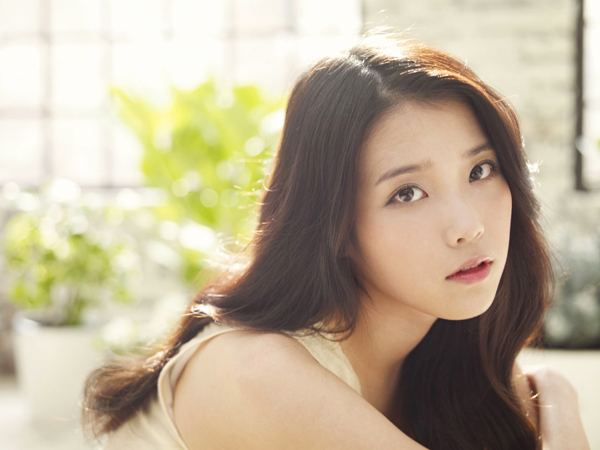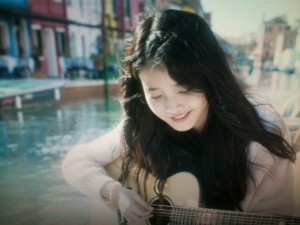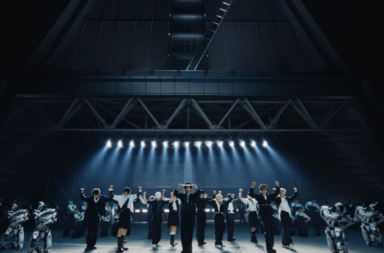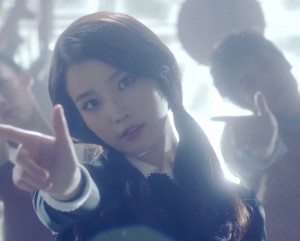 Almost a month ago, my fellow writer Paloma pondered on the lyrics of the always-classy miss A, relating the lyrics of their songs to the group’s refined image. Paloma made it pretty evident how lyrics can actually be representative of the group’s image despite K-pop’s overall lack of depth, and how thematic growth in lyrics can mirror a transition in an act’s image as well. To keep the pace going, let’s take a look at the so-called, “Nation’s Little Sister” IU, who just celebrated her fourth anniversary as a K-pop act, and reflect on how, or even if, the lyrics of her songs can be representative of her image as a whole.
Almost a month ago, my fellow writer Paloma pondered on the lyrics of the always-classy miss A, relating the lyrics of their songs to the group’s refined image. Paloma made it pretty evident how lyrics can actually be representative of the group’s image despite K-pop’s overall lack of depth, and how thematic growth in lyrics can mirror a transition in an act’s image as well. To keep the pace going, let’s take a look at the so-called, “Nation’s Little Sister” IU, who just celebrated her fourth anniversary as a K-pop act, and reflect on how, or even if, the lyrics of her songs can be representative of her image as a whole.
In the K-pop world, IU is probably most known for two things: her breathy and pleasant, yet surprisingly potent voice and her equally pleasant, albeit aegyo-laden image. IU’s image focuses on — even exaggerates at points — her adorable natural charms and her youth, to the point where IU’s almost notorious for her abundance of uncle fans. From her small stature, clumsy tendencies, and quirky demeanor, the girl is genuinely adorable, and her company LOEN Entertainment sure knows it.
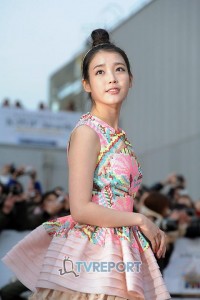 For IU to retain such an image, her youth is continually highlighted. And to be honest, that focus is justified, since IU genuinely is young, starting her career at a considerably young age. And to accommodate this focus, IU’s music of recent times is often very sweet, girly, and refreshing, so as to depict how innocent and young the soloist is. But while this focus is justified, it has ended up turning some individuals away from her sound despite knowing about her clear vocal skill.
For IU to retain such an image, her youth is continually highlighted. And to be honest, that focus is justified, since IU genuinely is young, starting her career at a considerably young age. And to accommodate this focus, IU’s music of recent times is often very sweet, girly, and refreshing, so as to depict how innocent and young the soloist is. But while this focus is justified, it has ended up turning some individuals away from her sound despite knowing about her clear vocal skill.
However, as many are aware, IU didn’t start out with a necessarily innocent and delicate image. On the contrary, IU’s image during her debut period was very dark and mature. She stepped into the world of K-pop with the chilling and haunting “Mia,” otherwise known as “Lost Child.” It was only after IU’s following effort “Boo” that the young starlet transitioned into the image she is known for today. She has embodied the essence of cute and trendy youth, to attract more fans following the relative failure of her (breathtakingly amazing in this author’s opinion) debut song.
But while IU’s image made a full 180, something that carried over and still remains with her to this day is her lyrics’ focus on youth, despite changes in the way the theme is presented. IU’s definition of youth during her debut period was more symbolic and twisted, while her take on youth today is more literal and apparent.
For example, even if the effort was dominantly mature and intense, naivete and occasional immaturity were still major themes in the entirety of IU’s debut album Lost and Found. The title song, while still the most mature piece on IU’s discography, still made use of IU’s young age — she was approximately 15 at the time of her debut! — to make a point. “Mia” compared the state of mind of one reeling from a past love to the state of mind of a lost child, being vulnerable and desperate for care, which used IU’s youth more symbolically rather than literally. Also in the album was the song “Ugly Ducking.”
Me with my small flap
Ugly duckling, but the same
The song made good use of the allusion towards Hans Christian Andersen‘s famous tale, a story often associated with childhood and bed time stories, and talked of a vulnerability and loneliness, with a child’s often helpless perspective in mind. Imagery and motifs with childish connotations still remain popular with IU, also seen through her rather twisted “Cruel Fairy Tale.”
However, following Lost and Found and IU’s change in image, her take on youth became much more literal. Childish lyrics and woes became more evident in the lyrics of her songs. For instance, there’s her title song, “Boo”, from the album Growing Up.
You have a face that doesn’t appeal to me
and even all your habits are the ones I don’t like
When you brushed me by I looked at you like (No)
I really hated it (and I kinda felt sorry)
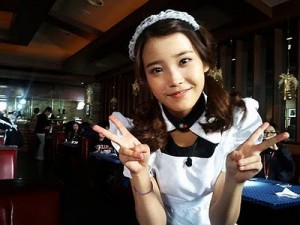 The change from something as meaningful as “Mia” to something as childish as “Boo” was jarring and frankly disappointing in terms of depth. But some good did happen in that change. As one can clearly see with the album title, the concept of growing up was also introduced in IU’s lyrics through Growing Up, an idea of transition that also remains constant in IU’s songs henceforth. For example, “Graduation Day” (kind of obviously) spoke about the feelings one gets during one’s day of graduation, and amplified feelings of sentimental longing to personal satisfaction in growing up.
The change from something as meaningful as “Mia” to something as childish as “Boo” was jarring and frankly disappointing in terms of depth. But some good did happen in that change. As one can clearly see with the album title, the concept of growing up was also introduced in IU’s lyrics through Growing Up, an idea of transition that also remains constant in IU’s songs henceforth. For example, “Graduation Day” (kind of obviously) spoke about the feelings one gets during one’s day of graduation, and amplified feelings of sentimental longing to personal satisfaction in growing up.
IU’s theme of growth and adolescence has only progressed, will traces of a literal focus on youth. Each one of her comebacks has depicted a stage in life, and these are made obvious right from the album titles. From Real, a reference lingo popular among Korean teens and as such describes the extent of teenage woes; to Last Fantasy, which talked about the last days of carefree adolescent childhood full of imagination and creativity; to The Spring of a Twenty Year Old, which shows IU getting used to being and blooming as an adult, each of these efforts focus on a stage of growth that matches IU’s current age and image.
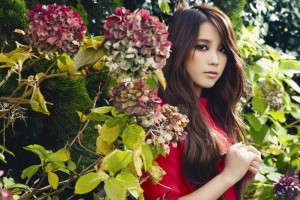 And even in IU’s more serious ballads, if her youth is not outright mentioned as a major centerpiece thematically, age and age differences are also fairly common themes for her. Clearly seen through the music video “The Story Only I Didn’t Know,” the song supposedly told of a love between IU and a much older man, and the pain IU felt following the end of that relationship.
And even in IU’s more serious ballads, if her youth is not outright mentioned as a major centerpiece thematically, age and age differences are also fairly common themes for her. Clearly seen through the music video “The Story Only I Didn’t Know,” the song supposedly told of a love between IU and a much older man, and the pain IU felt following the end of that relationship.
At that time, that I was already a part of your ending
Was a story only I didn’t know
But overall, despite some borderline saccharine moments (ahem “Marshmallow”), the continual themes revolving around growth and transition in IU’s work not only serves as very potent and easily imaginable concepts, but they are also things that IU can stick with for a long time. Some of these have even become a distinction of hers. While it’s a shame that IU — who already showed her maturity through her earlier work and her offstage personality — has to keep on acting younger than she mentally is and sing of situations that’s probably behind her, this theme tracks her growth and concepts in a logical and cumulative progression. 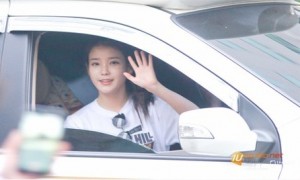 It just ties her entire discography together in a way that makes sense, something other groups with revolving concepts can’t say. And hey, if this progression keeps going, we might finally see an adult and fully mature release from IU, something fans — this writer most definitely — have painstakingly been yearning for.
It just ties her entire discography together in a way that makes sense, something other groups with revolving concepts can’t say. And hey, if this progression keeps going, we might finally see an adult and fully mature release from IU, something fans — this writer most definitely — have painstakingly been yearning for.
So to conclude, I’d definitely say IU’s lyrics are a pretty accurate reflection on her image at the moment. Her youth is her current focus, and her lyrics depict that, either through childish imagery or through situations more relatable to a younger audience. But what do you Seoulmates think? Any further comments on IU’s lyrics and image?
(LOEN Entertainment, weheartiu.com, jpopasia.com, kimchimedia.wordpress.com, kpoplyrics.net)
